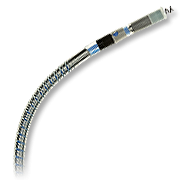
May 13, 2013 — The Population Health Research Institute (PHRI) has conducted a further independent analysis of data received from ongoing prospective registries that monitor the performance of the St. Jude Medical Durata and Riata ST Optim implantable cardioverter defibrillator (ICD) leads.
PHRI analyzed data from three actively monitored registries; the OPTIMUM, SCORE and SJ4 Post-Approval registries, all sponsored by St. Jude Medical. The combined data from these registries currently represents more than 11,000 leads implanted at 293 sites.
The findings from PHRI’s initial analysis of the combined Optim-insulated lead registries, for data collected through Feb. 28, 2013, include:
- 99.9 percent rate of freedom from all-cause insulation abrasion (includes all types of abrasion and other mechanical types of insulation damage) at five years
- 99.4 percent rate of freedom from all-cause mechanical failure (includes any insulation abrasion, conductor fracture, failure of a crimp, weld, or bond, or other mechanical failure) at five years
“Data from St. Jude Medical’s prospective, actively-monitored Optim lead registries have been thoroughly analyzed by PHRI and continue to demonstrate very low rates of insulation abrasion and mechanical failure,” said Dr. John Cairns, professor of medicine and former dean of medicine at University of British Columbia in Vancouver. “These prospective registries are well designed with pre-specified definitions for adverse events and a centralized reporting structure. They have now been independently adjudicated by PHRI.”
The results are published beginning on page 257 of the first edition of the 2013 St. Jude Medical Product Performance Report (PPR).
For more information: www.sjm.com, www.sjmprofessional.com


 January 05, 2026
January 05, 2026 









